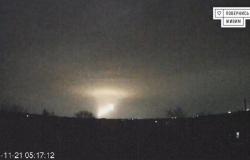Every week, our journalist answers scientific questions from readers.
Posted at 1:28 a.m.
Updated at 9:00 a.m.
We often hear about Russian cyberattacks. Why don’t we disconnect Russia from our network?
Marcel Boudreault
This would be very difficult, because several countries with which Russia is connected on the Internet are its allies. For example, China.
“All countries that control routers allowing communication with Russia would need to agree to block traffic,” explains Frédéric Cuppens, director of the Multidisciplinary Institute in Cybersecurity and Cyberresilience (IMC2) at Polytechnique Montréal.
“From a political point of view, it seems complicated. If a single country, like China, does not collaborate, it does nothing. »
The possibility of cutting off Russia from the internet can be compared to China’s “Great Firewall”, which does exactly the opposite: it prevents Chinese internet users from accessing the rest of the world.
“To cut off access to the rest of the world, China only needs to act on the routers on its territory,” underlines Mr. Cuppens. And even there, it’s not a total cut, because there are people who work in China who should not be blocked, like in embassies. »
PHOTO TAKEN FROM THE POLYTECHNIQUE MONTRÉAL SITE
Frédéric Cuppens, director of the Multidisciplinary Institute in Cybersecurity and Cyberresilience at Polytechnique Montréal
Would it at least be possible to slow down the internet in Russia by blocking internet connections to Russia that are located in NATO countries? “Putin has already cut off certain internet access outside the country to prevent Russia from being attacked, so that wouldn’t change much,” said the Polytechnique Montréal professor.
In any case, Canada already does “geofencing” (geofencing) to prevent the activity of certain Russian sites, in order to limit political and military interference, according to Mr. Cuppens. Cybersecurity companies carry out this type of analysis on instructions from the Canadian government.
In addition, Russia instigates many of its internet attacks from other countries, notes Mr. Cuppens. In September, the US Department of Justice charged a Tennessee media company, Tenet Media, with accepting $10 million in Russian payments to produce videos with pro-Russian content.
In 2022, the German Council on Foreign Relations concluded in a report that Russia had instigated, through Slovak, Italian, German and Hungarian intermediaries, disinformation activities regarding the war in Ukraine on Facebook.
Do you have a scientific question? Write to us
Learn more
-
- 4,5 %
- Proportion of internet pages that are in Russian. For comparison, 4.3% of internet pages are in French.
Source : POE Editor







